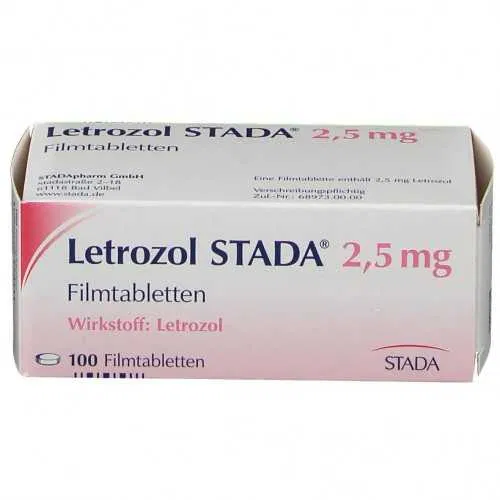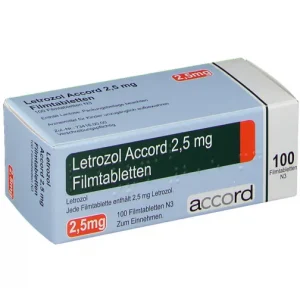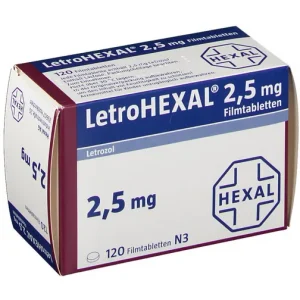Description
Method of administration and dosage
The drug is taken orally, regardless of food intake. The recommended dose of Letrozole preparation is 2.5 mg 1 time/day, daily, long-term (for 5 years or until relapse). As extended adjuvant therapy, treatment should be continued for 4 years (not longer than 5 years). Letrozole should be discontinued if there are signs of disease progression. In patients with end-stage disease or metastatic tumour, Letrozole treatment should be continued as long as tumour progression is expressed. In elderly patients, no dose adjustment of Letrozole is required. In liver or renal dysfunction (CK >10 ml/min) no dose adjustment is required. However, in case of severe hepatic dysfunction (Child-Pugh class C) patients require constant medical supervision.
Side effects
Generally, adverse reactions were mild to moderately severe and mainly related to suppression of estrogen synthesis. Determination of the frequency of adverse reactions: very common ( >10%), common (1-10%), sometimes (0.1-1%), rare (0.01-0.1%), very rare ( less than 0.01%), including isolated reports Digestive system: often – nausea, vomiting, dyspepsia, constipation, diarrhoea . sometimes – abdominal pain, stomatitis, dry mouth, increased activity of liver enzymes. Nervous system: often – headache, dizziness, depression . sometimes – anxiety, nervousness, irritability, somnolence, insomnia, memory impairment, dysesthesia, paresthesia, hypoesthesia, episodes of cerebral circulation disorders. Hematopoiesis: sometimes – leukopenia. Cardiovascular system: sometimes – palpitations, tachycardia, thrombophlebitis of superficial and deep veins, increased BP, CHD (angina pectoris, myocardial infarction, heart failure), thromboembolism. rarely – pulmonary embolism, arterial thrombosis, stroke. Respiratory system: sometimes – dyspnoea, cough. Dermatological reactions: often – alopecia, increased sweating, skin rash (including erythematous, maculo-papular, vesicular rash, psoriasis-like rashes) . sometimes – skin itching, dry skin, urticaria . very rare – angioedema, anaphylactic reactions. Musculoskeletal system: very often – arthralgia . often – myalgia, bone pain, osteoporosis, bone fractures, sometimes – arthritis. Sensory organs: sometimes – cataract, eye irritation, blurred vision, taste disturbance. Urinary system: sometimes – increased urination, urinary tract infections. Reproductive system: sometimes – vaginal bleeding, vaginal discharge, vaginal dryness, pain in the mammary glands. Metabolism: often – increase in body weight, hypercholesterolaemia, anorexia, increased appetite. sometimes – decrease in body weight, thirst. Other: very often – hot flashes (hot flashes) . often – increased fatigue, asthenia, malaise, peripheral edema . sometimes – hyperthermia (pyrexia), dry mucous membranes, generalised oedema, pain in tumour foci.






Reviews
There are no reviews yet.